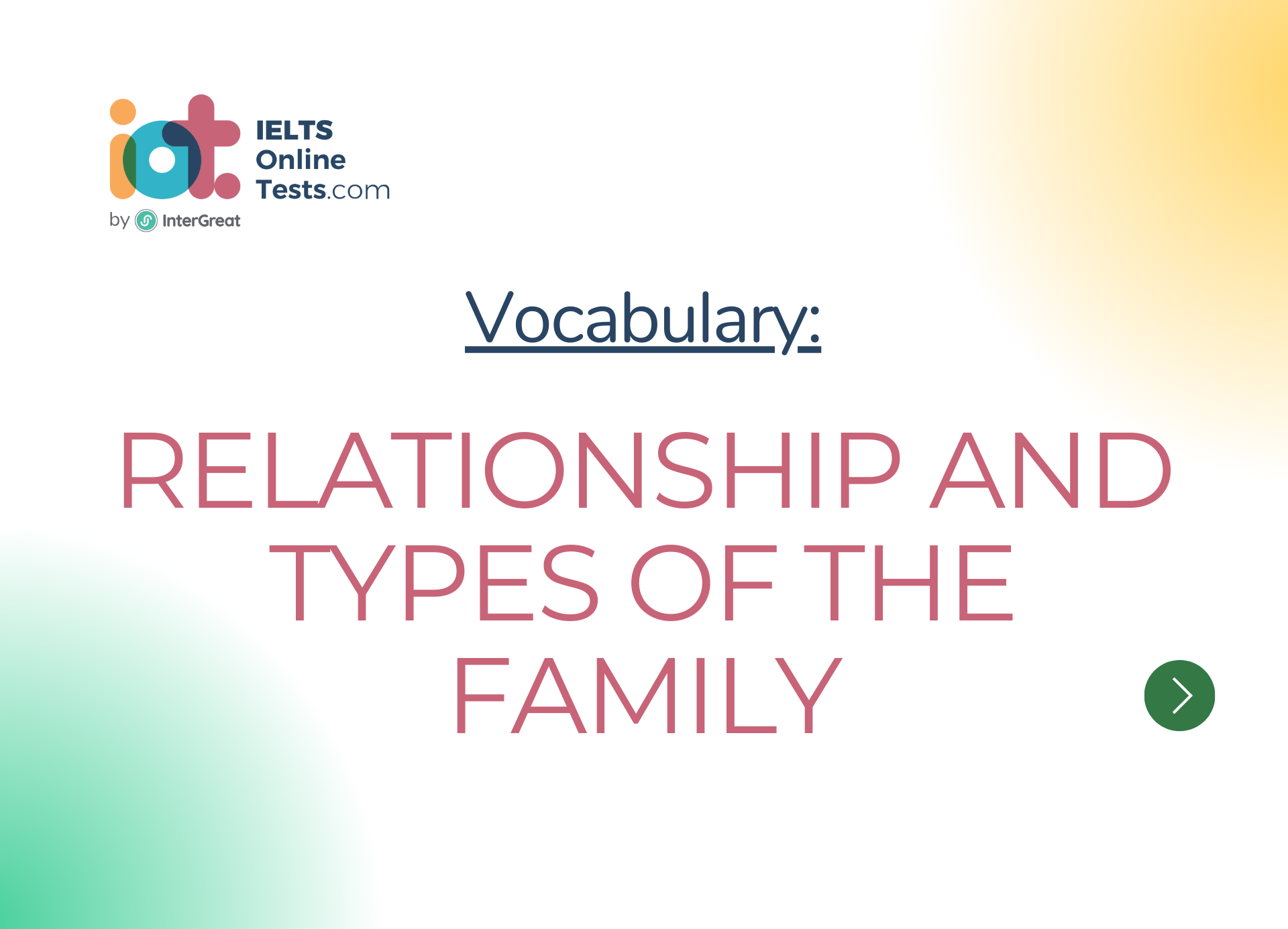
Relationship and types of the family
Here's a lesson on vocabulary related to "Relationship and Types of the Family" for the IELTS band score 3.0-4.5:
I. Relationships:
Friends: People you enjoy spending time with and have a bond of mutual affection.
Acquaintances: People you know but are not close friends with.
Colleague: A person you work with or have a professional relationship with.
Neighbor: A person who lives near you.
Classmate: A person who is in the same class or course as you.
II. Types of Family:
Nuclear family: A family unit consisting of parents and their children.
Extended family: A family that includes grandparents, aunts, uncles, and cousins.
Single-parent family: A family in which one parent raises the child(ren).
Blended family: A family formed by the remarriage of a divorced or widowed parent.
Adoptive family: A family where parents have legally adopted a child.
Foster family: A family that cares for children temporarily on behalf of social services.
III. Family Members:
Parents: Mother and father who raise and care for their children.
Siblings: Brothers and sisters, whether older or younger.
Grandparents: The parents of one's parents.
Aunts/Uncles: The siblings of one's parents.
Cousins: The children of one's aunts and uncles.
Children: The offspring of parents.
IV. Family Roles and Relationships:
Father: A male parent in the family.
Mother: A female parent in the family.
Son: A male child of the parents.
Daughter: A female child of the parents.
Older brother/Younger brother: Brothers with an age difference.
Older sister/Younger sister: Sisters with an age difference.
V. Family Dynamics:
Love and support: Emotional connection and care within the family.
Responsibility: The duties and obligations one has toward their family members.
Communication: The exchange of information and ideas within the family.
Sharing: Sharing experiences, resources, and emotions with family members.
Conflict resolution: The process of addressing and resolving disagreements within the family.
Remember to practice using these vocabulary words in sentences and conversations to improve your understanding and fluency in English.




